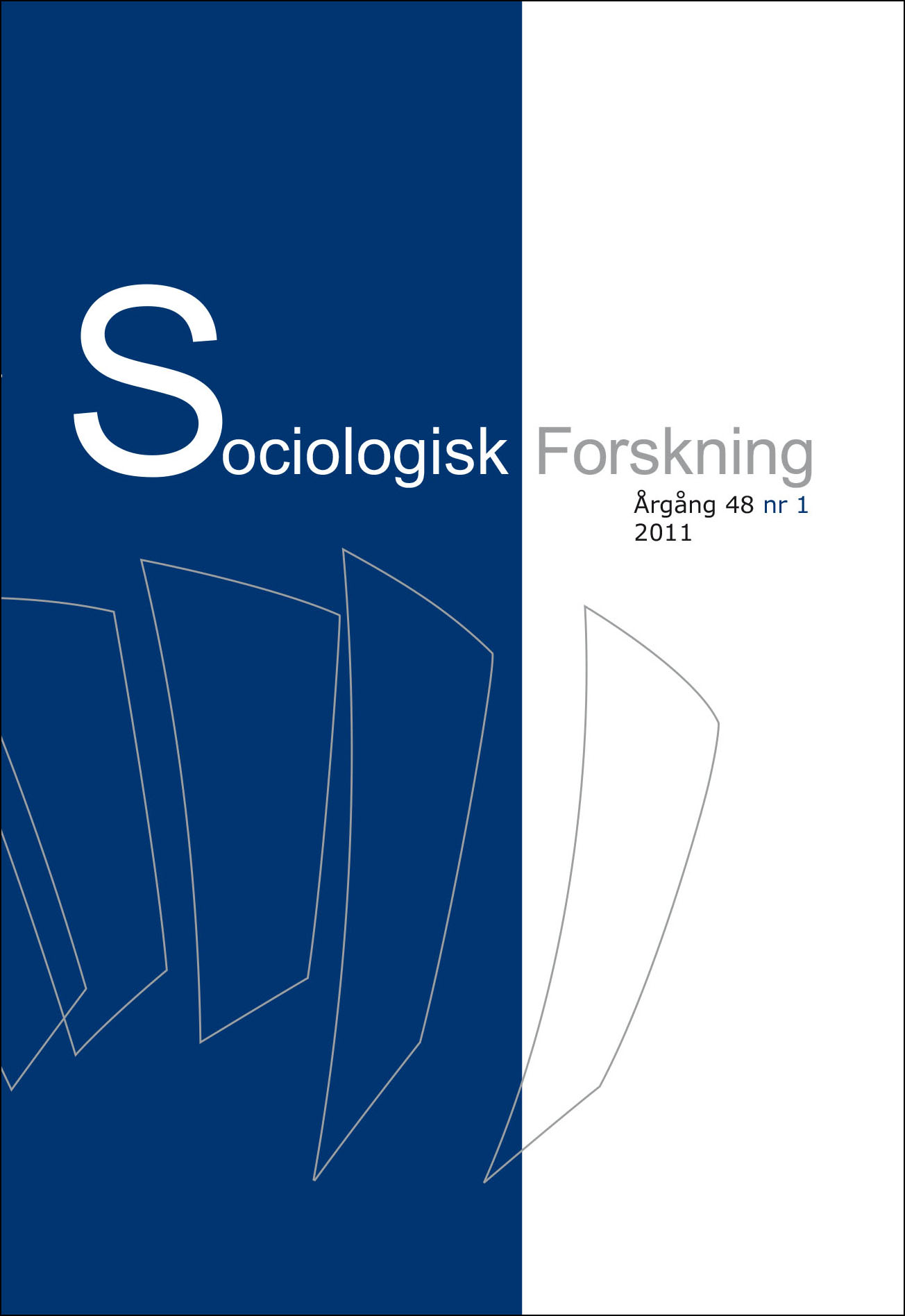Konsensus och personifierade konflikter
problembeskrivningar av äldreomsorg i svensk dagspress
DOI:
https://doi.org/10.37062/sf.48.18417Nyckelord:
elderly care, mass media, problems, SwedenAbstract
Consensus and personified conflicts: representations of elderly care issues in Swedish newspapers
Elderly care issues are commonly framed in public discourse. In mass media the representations of such issues are influenced by media logic. The purpose of this paper is to describe and analyse how elderly care issues were represented in three Swedish newspapers during the first half of 2007. How were the problems characterized? How were different actors characterized and which roles were they assigned? How are conflicts of interests described? Finally, we aim to discuss how media contribute to an understanding of the complexity of elderly care as a whole.
Taken together, the articles do not provide a coherent picture. However, costs, quality of care and demographic issues were common themes. The elderly were commonly represented in personal narratives about problems that occurred when they needed elderly care. The elderly in the future are projected as more active and demanding than the elderly today. The care workers were active voices in discussions about working conditions, but absent in discussions about their education and professional identity, which was an issue commonly advocated by politicians.
Many issues were represented as conflicts between the individual elderly and the care system or between care workers and their employers. More elaborated discussions about how to prioritize between different needs and demands were rare. This can be seen as examples of how the media tends to use personification, simplification and polarization as means to tell interesting stories.
Downloads
Publicerad
Referera så här
Nummer
Sektion
Licens
Allt material i Sociologisk Forskning publiceras med omedelbar öppen tillgång (open access), under Creative Commons-licensen CC BY-NC-ND 4.0.
Allt innehåll i tidskriften är fritt tillgängligt utan kostnad och får för icke-kommersiella syften fritt läsas, laddas ned, kopieras, delas, skrivas ut och länkas. Innehållet får dock inte ändras. När innehållet används måste författare och källa anges. Upphovsrätten till innehållet tillhör respektive författare. Inga publiceringsavgifter tas ut.





